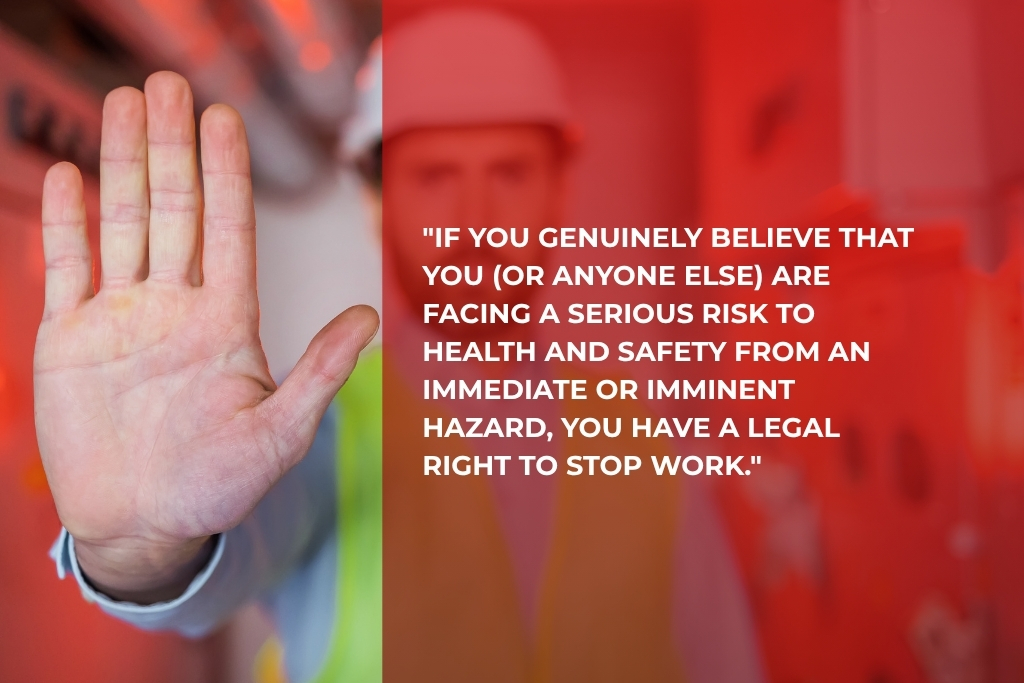As workers, we all have a legal right to stop any work that we believe will get us or anyone else hurt
If you genuinely believe that you (or anyone else) are facing a serious risk to health and safety from an immediate or imminent hazard, you have a legal right to stop work.

If something feels wrong when you're on the job
Step back and consider:
- Is there a serious risk arising from this work?
- Is it likely that myself or someone else will be harmed if I continue this work?
If you think so, STOP WORK immediately. Inform your manager, your H&S representative, and your union delegate.
You can't get in trouble for stopping unsafe work to protect yourself, your colleagues, or anyone else on the worksite.
Understanding your right to stop unsafe work
The standard for stopping work is if you [the worker] believe the work is unsafe.
- This is a subjective standard. If you genuinely believe that you need to stop work because of a serious risk and it is an immediate or imminent threat to your safety, you cannot be punished for stopping work.
A serious risk relates to both the likelihood and severity of a risk to health and/or safety.
- This means that you should cease work if there is a real likelihood of harm, even if the level of injury would be minor.
The risk needs to be due to an immediate or imminent hazard.
- If the exposure to the hazard is not immediate or imminent then the issue should be raised, and dealt with, through normal health and safety processes.
What happens after you stop work?
Your employer can offer you suitable alternative work until your usual work can be resumed. This work must be safe and within the scope of your employment agreement.
Once you've tried to resolve the issue with the PCBU, you don't have to start work again if you still reasonably believe that you or another person would be in danger.
- This is now an objective standard. Would others watching this work consider it reasonable to continue working (or not working)?
If the issue remains unresolved after the PCBU has tried to remedy the situation, you can ask WorkSafe to assist.
Work that usually involves an inherent or understood risk to health and safety
The main exception to the right to stop work is when work has an inherent or usually understood risk to health and safety.
However if that risk has materially increased, then the worker can stop work.






